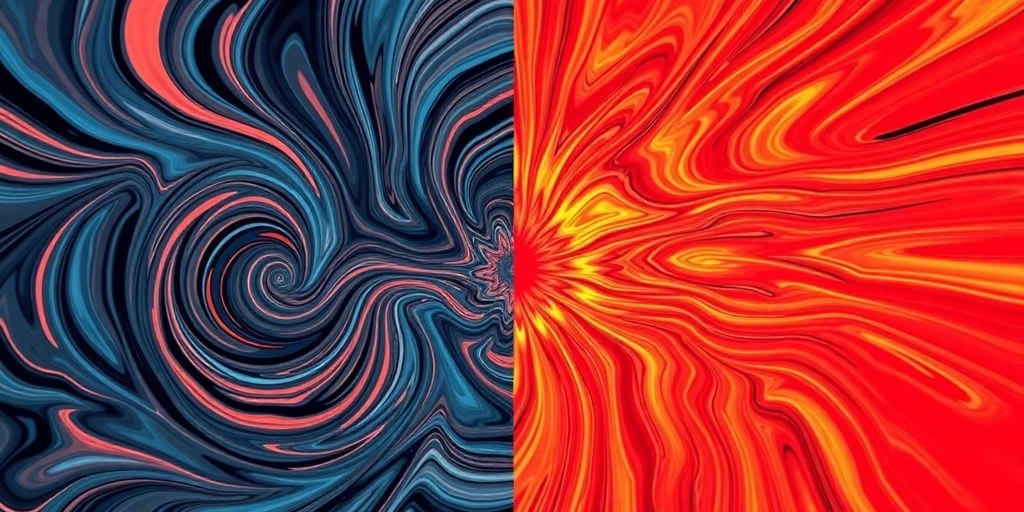Many people wonder about the differences between bipolar disorder and ADHD. While both can affect mood and behavior, they are distinct conditions. Understanding these differences is important for getting the right help. This article breaks down what makes bipolar disorder and ADHD unique.
Key Takeaways
- Bipolar disorder involves distinct mood swings, including manic or hypomanic episodes and depressive episodes.
- ADHD is primarily a disorder of attention, hyperactivity, and impulsivity.
- While some symptoms can overlap, a proper diagnosis from a healthcare professional is necessary to tell bipolar vs ADHD apart.
Understanding Bipolar vs ADHD

It’s pretty common for people to get Bipolar Disorder and ADHD mixed up, especially since some of the symptoms can look similar on the surface. But knowing the real differences is super important for getting the right help. At Polished Mind Psychiatry, we see folks from Texas, Washington, California, Iowa, and New York who are trying to figure this out. It’s not just about a few overlapping signs; these are distinct conditions that affect people in different ways.
Core Distinctions Between Bipolar Disorder and ADHD
Think of it this way: Bipolar disorder is mainly about mood swings. People with bipolar disorder experience distinct periods of elevated mood (mania or hypomania) and periods of depression. These mood states can last for days, weeks, or even months. ADHD, on the other hand, is a neurodevelopmental disorder. It’s characterized by ongoing patterns of inattention and/or hyperactivity-impulsivity that interfere with functioning or development. While someone with ADHD might have trouble regulating their emotions, it’s not the same as the distinct mood episodes seen in bipolar disorder. Getting a clear picture of these core differences is the first step toward effective treatment. If you’re in TX, WA, CA, IA, or NY and want to talk about this, you can book an appointment.
Navigating the Nuances of Bipolar vs ADHD
When you look closer, the differences become clearer. For instance, ADHD symptoms are generally consistent over time, though they can fluctuate in intensity. Bipolar disorder, however, is defined by its episodic nature. You have clear shifts between different mood states. This difference in how symptoms present is a big clue for doctors. It helps them figure out what’s going on. Sometimes, the frustration from living with ADHD can lead to feelings of depression, making it even more important to understand how ADHD can lead to depression.
It’s important to remember that while some behaviors like impulsivity might appear in both conditions, the underlying causes and the overall pattern of symptoms are quite different. This is why a thorough evaluation is so necessary.
For those dealing with both conditions, a careful approach is needed. Treatment often involves a combination of strategies. This might include mood stabilizers for bipolar disorder and stimulant or non-stimulant medications for ADHD, alongside therapy. Finding the right balance can make a big difference in managing daily life. Learning about mood stabilizers for bipolar II can be a good starting point for understanding treatment options.
Key Differentiating Factors
Mood Stability and Emotional Regulation
Bipolar disorder is primarily characterized by significant shifts in mood, energy, and activity levels. These shifts are often described as distinct episodes, cycling between periods of elevated mood (mania or hypomania) and periods of depression. During manic episodes, individuals might experience intense energy, racing thoughts, impulsivity, and a decreased need for sleep. Conversely, depressive episodes involve persistent sadness, low energy, and a loss of interest in activities. The defining feature of bipolar disorder is the presence of these distinct mood states. For those in Texas, Washington, California, Iowa, or New York seeking clarity on mood regulation, understanding these episodic changes is key. If you’re experiencing such mood swings, it’s important to seek professional guidance. You can book an appointment with us to discuss your concerns.
Attention and Focus Challenges
While bipolar disorder affects mood, ADHD primarily impacts attention, hyperactivity, and impulsivity. Individuals with ADHD often struggle with maintaining focus on tasks, organizing their work, and managing their time. They may appear restless, have difficulty sitting still, and act impulsively without considering the consequences. Unlike the episodic nature of bipolar mood swings, ADHD symptoms are generally persistent and present from childhood. However, it’s worth noting that approximately 70% of adults with ADHD also have other mental health conditions, which can sometimes complicate the picture. Recognizing these differences is vital for proper diagnosis. For instance, while both conditions can involve impulsivity, in ADHD it’s often a core feature of attention and self-regulation issues, whereas in bipolar disorder it can be more pronounced during manic phases.
It’s important to remember that ADHD can sometimes appear before bipolar disorder and might even be a risk factor for its development. This connection highlights why a thorough evaluation is so important when trying to figure out what’s going on.
When trying to tell the two apart, think about the pattern of symptoms. ADHD symptoms tend to be ongoing, affecting daily life consistently. Bipolar disorder, on the other hand, is marked by clear periods of highs and lows. Getting the right diagnosis is the first step toward effective treatment. If you’re in California, Iowa, New York, Texas, or Washington and need help distinguishing between these conditions, our team can assist. We offer specialized ADHD treatment and support for various mood disorders.
Symptom Overlap and Diagnosis

It can be tricky to tell bipolar disorder and ADHD apart sometimes. Many of the signs can look similar, which is why getting a correct diagnosis is so important. For instance, someone with ADHD might have trouble focusing and seem restless, and these symptoms can sometimes be mistaken for symptoms of other conditions, like depression or even bipolar disorder. Similarly, the impulsivity and mood swings associated with bipolar disorder can also overlap with ADHD. This overlap is quite common; research shows a notable percentage of people with ADHD also have bipolar disorder, and vice versa.
Recognizing Shared Symptoms
When looking at bipolar disorder and ADHD, there are a few key areas where symptoms can get mixed up:
- Mood and Energy Levels: Both conditions can involve periods of high energy or restlessness. In bipolar disorder, this is part of mania or hypomania, while in ADHD, it might be related to hyperactivity or difficulty settling down.
- Impulsivity: Acting without thinking is a symptom seen in both. For someone with bipolar disorder, it might happen during a manic phase, leading to risky behaviors. For someone with ADHD, it can be a more consistent challenge with impulse control.
- Focus and Attention: Difficulty concentrating is a hallmark of ADHD, but it can also be present in bipolar disorder, especially during depressive episodes or when someone is experiencing racing thoughts.
- Sleep Disturbances: Trouble sleeping can occur in both conditions, though the patterns might differ.
The Importance of Accurate Diagnosis
Because these symptoms can overlap, it’s really important to get a thorough evaluation from a qualified professional. A proper diagnosis helps ensure that the right treatment plan is put in place. For example, treatments that work well for bipolar disorder might not be the best fit for ADHD, and vice versa. Getting the right diagnosis means you can start on the path to feeling better sooner. If you’re in Texas, Washington, California, Iowa, or New York and are looking for clarity, consider reaching out for professional help. You can book an appointment to discuss your concerns and get the support you need. Understanding the differences is the first step toward effective ADHD treatment.
It’s common for different mental health issues to share similar signs, making it tricky to pinpoint the exact problem. For instance, feeling tired and having trouble sleeping can be part of many conditions. If you’re struggling to understand what you’re going through, we can help. Visit our website to learn more about how we can assist you in finding the right diagnosis and treatment plan.
Putting It All Together
So, we’ve looked at how bipolar disorder and ADHD can sometimes seem alike, but they’re really different conditions. It’s easy to get them mixed up because some symptoms overlap, like trouble focusing or feeling restless. But the core issues are not the same. Bipolar disorder is mainly about big mood swings, going from highs to lows. ADHD, on the other hand, is more about ongoing issues with attention, impulsivity, and being active. Getting the right diagnosis is super important. It means you can get the right kind of help and treatment to manage things better. If you’re feeling unsure about what you’re experiencing, or if you think you or someone you know might have one of these conditions, reaching out to a professional is the best next step. Polished Mind Psychiatry offers personalized care and telehealth options, making it easier to get the support you need. You can book an appointment at polishedmindpsychiatry.com/book-an-appointment to start figuring things out.
Frequently Asked Questions
What is the main difference between bipolar disorder and ADHD?
Bipolar disorder involves extreme mood swings, going from very high energy and happiness (mania or hypomania) to deep sadness and low energy (depression). ADHD, on the other hand, is mainly about ongoing issues with attention, focus, and sometimes hyperactivity or impulsivity, without the distinct mood shifts seen in bipolar disorder.
How do mood swings relate to ADHD symptoms?
While both conditions can affect focus and cause restlessness, bipolar disorder’s key feature is the significant changes in mood and energy levels. ADHD symptoms are more about a persistent pattern of inattention and/or hyperactivity-impulsivity that interferes with daily life. A proper diagnosis from a healthcare professional is crucial to tell them apart.
Can someone have both ADHD and bipolar disorder?
It’s possible for someone to have both ADHD and bipolar disorder, which can make diagnosis tricky. Sometimes, the symptoms of one condition can look like the symptoms of the other. That’s why it’s so important to see a doctor or mental health expert who can carefully evaluate all your symptoms to provide the right diagnosis and treatment plan. Polished Mind Psychiatry offers personalized care to help you understand your mental health better.




